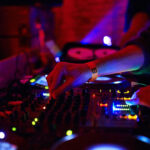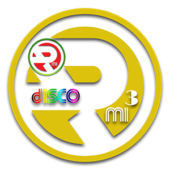Synth Pop
Presented by Nicola
Scheduled on
Tagged as Electronic, Syth Pop
The term “techno-pop” was coined by Yuzuru Agi in his critique of Kraftwerk’s The Man-Machine in 1978 and is considered a case of multiple discovery of naming. Hence, the term can be used interchangeably to “synth-pop” but generally used to the scene of Japan and is a preferred term there.
"Synth-pop" is sometimes used interchangeably with "electropop", but "electropop" may also denote a variant of synth-pop that places more emphasis on a harder, more electronic sound. In the mid to late 1980s, duos such as Erasure and Pet Shop Boys adopted a style that was highly successful on the US dance charts, but by the end of the decade, the 'new wave' synth-pop of bands such as A-ha and Alphaville was giving way to house music and techno. Interest in new wave synth-pop began to revive in the indietronica and electroclash movements in the late 1990s, and in the 2000s synth-pop enjoyed a widespread revival and commercial success.
The genre has received criticism for alleged lack of emotion and musicianship; prominent artists have spoken out against detractors who believed that synthesizers themselves composed and played the songs. Synth-pop music has established a place for the synthesizer as a major element of pop and rock music, directly influencing subsequent genres (including house music and Detroit techno) and has indirectly influenced many other genres, as well as individual recordings.
"Synth-pop" is sometimes used interchangeably with "electropop", but "electropop" may also denote a variant of synth-pop that places more emphasis on a harder, more electronic sound. In the mid to late 1980s, duos such as Erasure and Pet Shop Boys adopted a style that was highly successful on the US dance charts, but by the end of the decade, the 'new wave' synth-pop of bands such as A-ha and Alphaville was giving way to house music and techno. Interest in new wave synth-pop began to revive in the indietronica and electroclash movements in the late 1990s, and in the 2000s synth-pop enjoyed a widespread revival and commercial success.
The genre has received criticism for alleged lack of emotion and musicianship; prominent artists have spoken out against detractors who believed that synthesizers themselves composed and played the songs. Synth-pop music has established a place for the synthesizer as a major element of pop and rock music, directly influencing subsequent genres (including house music and Detroit techno) and has indirectly influenced many other genres, as well as individual recordings.
Read more








 Italo Disco New Generation
Italo Disco New Generation  Euro Disco
Euro Disco